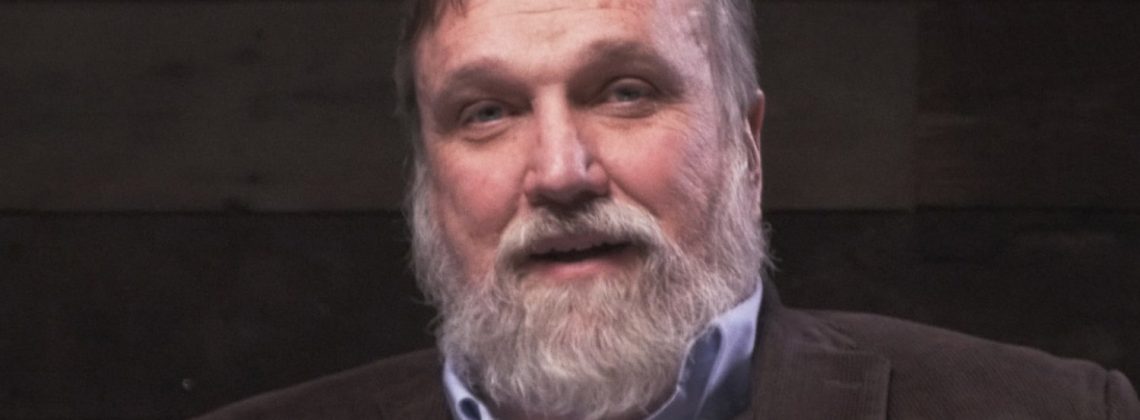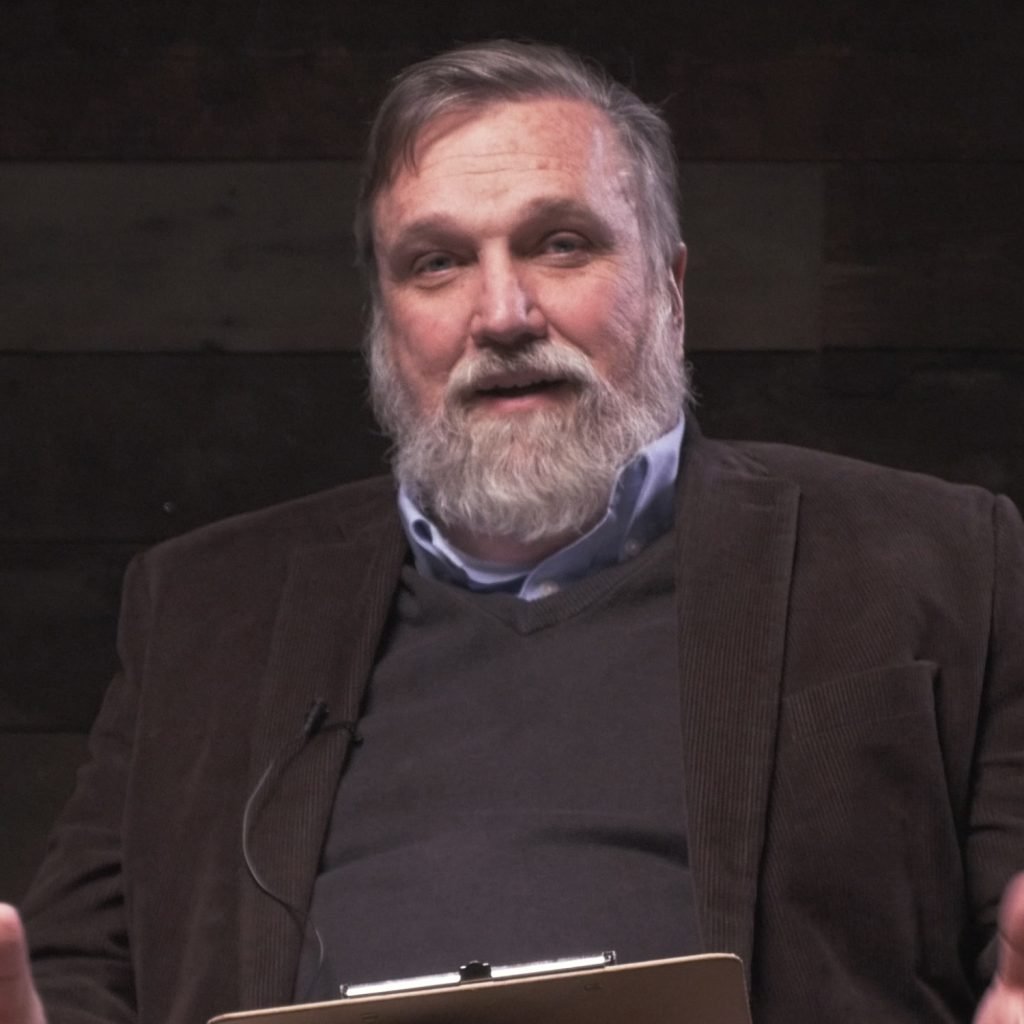

“When does a movement go from fringe to mainstream?” This is the question with which Peter Bell opens his new podcast, an in-depth examination of the movement Doug Wilson started, but whose tentacles extend far beyond Moscow, Idaho. I am grateful that Peter took the time to answer some questions about this project, which will begin releasing episodes shortly.
***
Would you tell a little bit about your theological and intellectual journey? Basically, how did you get where you are right now–both theologically and intellectually?
I’ll try to answer this in brief! Born and raised in the PCUSA, attended Wheaton and Biola, and landed at an Acts 29 church. Spent a few years there before enrolling at Westminster Seminary, California, and entered the world of all things Reformed. Started attending Oceanside URC, attempted to plant one in Central Orange County, and then, eventually, ended up in the Orthodox Presbyterian Church (OPC). I’m confessionally Reformed but frustrated.
Why this project–and why now? What are your goals for it? Who, in particular, is your audience?
The reason for this podcast? Because no one else would do it. Honestly. There’s been attempts by various corners of the Reformed world, and nothing’s quite stuck. NPR came out with a podcast series this summer, and it left the victims of abuse severely disappointed, and it was rather clear the host didn’t know what he was talking about. So, either, the podcasts (from the Reformed world) would talk theology, or the podcasts (from the “secular” world) sort of touched on abuse in these circles, but the theological and political issues were well above their “pay grade.” We didn’t see any podcast that really understood the foundational theological, political, and cultural issues, and the rampant abuse stories that just weren’t being looked at. So, we started researching about a year ago. We designed this to launch right before Doug’s “No Quarter November,” and sort of unintentionally around the American presidential election. It gave us the time to do the work we needed to do, talk to experts and victims of abuse, and craft something that could make a difference.
Now for goals: we’re aiming at exposing them. Everything. We’ve brought together a veritable all-star team of experts on Christian Nationalism, Patriarchy, Marriage, Sex; you name it, we have them. Now, not all of them are Christian, and very few are Reformed. But they’re all at the top of their field (I won’t name names yet) and bring substantial critiques that the movements we’re profiling have not yet faced. So, one aim is to break down every piece of the movement, the other aim is to give voice to survivors of abuse and to encourage others to speak out as well. It’s bad in these circles, and as of yet, they haven’t spoken out. We want to help them do so. We aren’t doing this to give the Reformed church a bad name, not at all! We’re doing this because we love the Reformed church and want to see Christ’s flock flourish in her.
So, we hope are audience are conservative Christians who care for the downtrodden, those hurt by the church. We also hope those outside the church can hear a different side of the church. Theologically informed and deep, of course, but with an open hand to those who have been pushed down, seeking their good, caring for them, and reminding them of Christ’s great love for them, no matter what they’ve been told or persuaded to believe.
You are calling this podcast “Sons of Patriarchy.” Would you explain this name?
Correct! There’s a few factors that played into this. First, I wanted to play off the TV series Sons of Anarchy. The vibe just fits for the movement we are profiling and exposing. Think early Doug Wilson. Second, I wanted to include Patriarchy, I wanted to steal their favorite word and reset it. I want the term to be associated with its exposure, not its perpetuation. I’ve tinkered with Google Analytics and SEO, so if people search the term, they’ll find us. And lastly, I didn’t want it to be *immediately* obvious whether we were for or against the movement. I wanted a little bit of intrigue. So, if there are those bought and sold by Moscow, I want them… interested. And then listen, and realize what’s going on. I wanted strength behind the name and series, and this seemed the best way to do it. These survivors haven’t had strength behind them, and now they do.
We all tend to go into big projects with certain assumptions and theories for what we might find. What were the assumptions and starting hypotheses for you in beginning this project? Have there been any surprises in your research for this podcast–areas where you found things to be different than you had expected?
I came into this with the same mindset as others who have talked about Doug’s theology. A little niche, but I’ll take a stab at it. Maybe I can do something? Maybe not? I wasn’t sure. Our first round of research wasn’t very robust, and we weren’t sure what we were looking at. I honestly had no idea what I was doing, neither did those behind it. I really thought this was going to be a small project, shed light on a few issues, and go on my merry way. It wasn’t until I spoke with a few survivors, and they started asking if they can talk to others who had been affected, that my eyes were opening, and I realized the scope. Not only that, just how extensive the influence is. It’s everywhere, we talked to people all across the United States, Canada, Latin America, Africa, all over Europe, Russia, and Australia. I had no framework for that at the beginning, I really thought this was a niche Reformed battle that R. Scott Clark (he was one of my professors at WSC) was fighting, and basically no one else. These dudes are *incredibly* influential, even if their names are not known.
One of the big surprises is just how sloppy these movements are. Christian Nationalism is just intellectually vaporous, it’s built on sand. Its grandpa, Catholic Integralism, has intellectual rigor and institutional support (at least historically), whereas Christian Nationalism is a theory. The early episodes in our series will break this down, and I suspect much of what people will hear will be shocking, intriguing, and downright comedic. They love their historical forebears, the magisterial Reformers, the Civil War era theologians, and the Reconstructionists of the 50s-80s, there’s just no alignment anywhere. Nothing of the Christian Nationalist framework makes any sense. Will this set them off? Yes. But it will help people make sense of the shoddy nature of their recent scholarship.
Perhaps I am an anomaly, but I’ve spent my thirteen (so far) years as a Christian in gender complementarian churches and while I know that abusive churches exist, I have never personally experienced problems. In fact, the few times I’ve encountered overt disrespect have been either in secular settings or from egalitarian men. It seems that whenever I see the term “patriarchy,” it’s always in condemnation, but I’d like to push back a little bit and ask for your thoughts on what healthy complementarianism could look like–as opposed to the dangerous version that you critique in your podcast.
I’m the same! The OPC is a complementarian church. Healthy and mutual complementarianism is one thing, and it is beautiful. The husband loves and sacrifices for his wife, leaders her unto righteousness not because she’s unable by herself but because he loves her. The wife loves and sacrifices for her husband, not because she’s forced nor told that’s the essence of her existence, but because she loves him. I hold to male-only ordination in the church, but that’s the extent of where I believe Scripture limits leadership. When does this go amok though? That’s when you run into commandments: Thus shall the husband do, and thus shall the wife.
Yes, we have roles: men are the only ones who can be husbands and fathers, and generally have the physical strength advantage over women. Women are the only ones who can be wives and mothers. There are things that are just true. But it’s when you tell someone “THIS is how you become a man: chop wood, burn couches, watch Braveheart, what have you.” Or “THIS is how you become a woman, walk barefoot in your kitchen and pop out image bearers.” And, to take a step further, when you speak about the inferiority of one gender compared to another? You’re in dangerous ground for abuse in so many contexts. I’m ALL for traditional marriage, the husband as protector and the wife and nurturer. BUT that’s not what makes a man, a man, and a woman, a woman. What makes a man, a man, and a woman, a woman, is God’s design that goes down to our very bones. It’s who we are and how we were created. Not what we do.